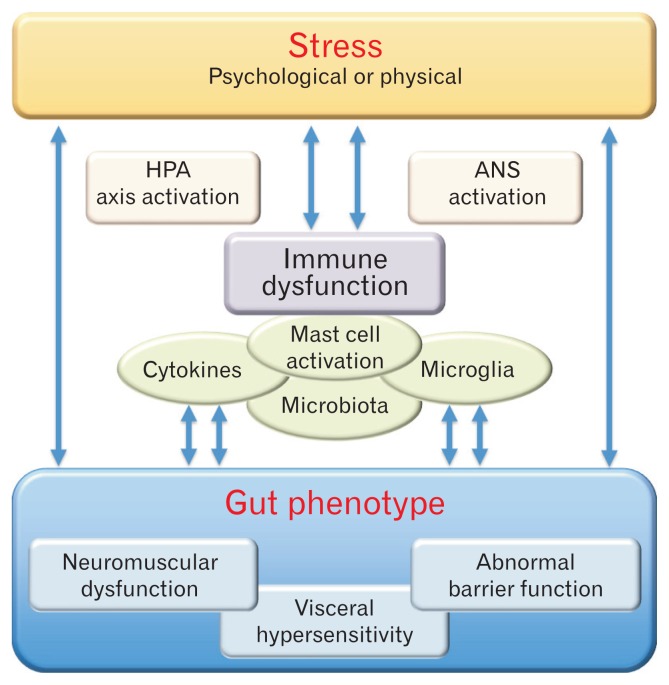Figure 1.
Pathophysiology of irritable bowel syndrome (IBS): activation of the brain-gut axis. Working model of stress-induced brain-gut dysfunction in IBS. Physical or psychological threats (actual or perceived) are stressors that activate both the hypothalamic-pituitary-adrenal (HPA) axis and the autonomic nervous system (ANS) to allow the individual to respond to the threat and to restore homeostasis. Prolong activation of the body’s stress response can lead to immune system dysfunction including activation of mast cells in the periphery and microglia in the spinal cord and the brain, release of proinflam-matory cytokines, and changes in host microbiota. Taken together, chronic stress and immune dysfunction provides an underlying mechanism for alterations in gut phenotypes including neuromuscular dysfunction, abnormal barrier function, and visceral hypersensitivity. Once established, these abnormal gut phenotypes facilitate further activation of the stress systems and immune dysfunction that maintains IBS symptoms.

